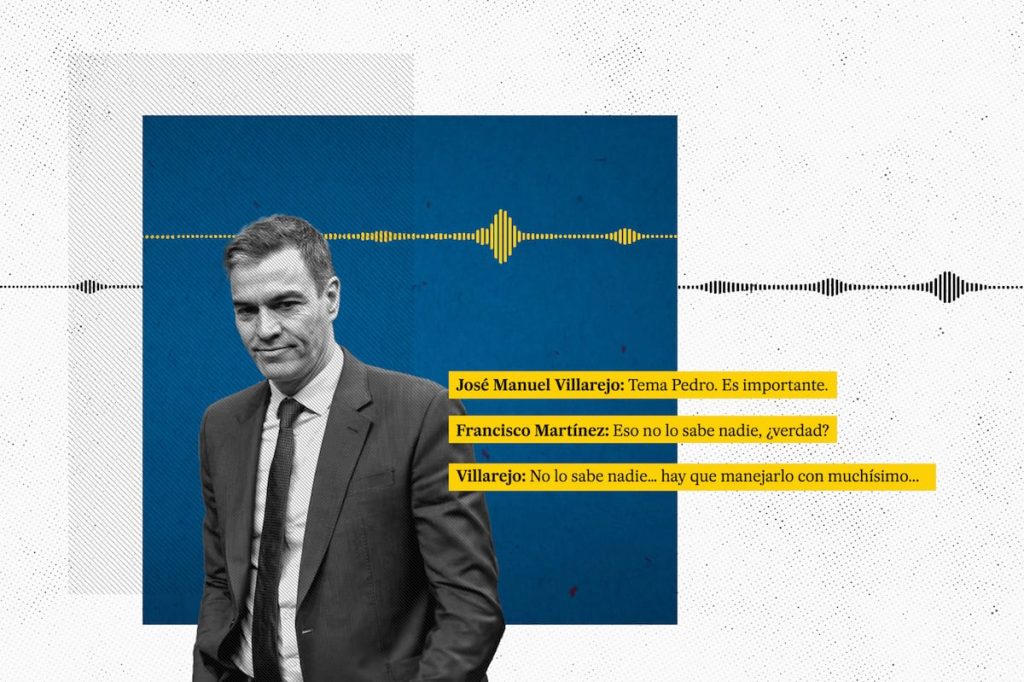The police and political persecution of the President of the Government, Pedro Sánchez, and his personal circle, began almost 10 years ago, exactly a month and eight days after he was elected Secretary General of the PSOE. On August 22, 2014, the number two at the Ministry of the Interior, Francisco Martínez, met with the commissioner José Manuel Villarejo to discuss various issues. From that meeting, recorded by Villarejo, there is evidence in the judicial investigation opened in the National Court by Judge Manuel García-Castellón. Villarejo brought up the “Pedro issue” in the conversation, to recount in detail the business dealings of the father and two uncles of Begoña Gómez, the wife of the President. The People’s Party has used these alleged business dealings of Sánchez’s father-in-law several times in recent years to try to discredit the President. Almost 10 years ago, the former Secretary of State for Security, Francisco Martínez, considered that the information he was receiving from Villarejo would be lethal for the newly elected Secretary General of the PSOE, Pedro Sánchez. The Police Commissioner suggested that he should discuss such an “important” matter with the President and the number one at the Ministry of the Interior. The conversation reveals details of the alleged business dealings of Sánchez’s relatives.
The current senator of the PP and until a year ago national deputy, Luis Santamaría, brought up the business dealings of Sánchez’s father-in-law during the parliamentary investigation into the illegal activities of the political police during the PP’s mandate. He first interrogated Commissioner Enrique García Castaño and then repeated the question to Villarejo. Santamaría asked about the potential involvement of Sánchez’s father-in-law in the family business in the prostitution industry, based on information found in Villarejo’s agenda. García Castaño defended the family’s business dealings as legal and honest. Villarejo also responded to Santamaría in his final appearance in Congress, praising Sánchez for his bravery and integrity. Villarejo also discussed with Martínez strategies against Catalan separatism, including a possible payment to an individual involved in a case against the Pujol family.
In the same conversation, Villarejo and Martínez also discussed strategies against Catalan separatism, including a payment to an individual involved in a case against the Pujol family and legal actions against the independence movement. Martínez asked if they were involved in the legal cases and Villarejo mentioned the presence of a particular organization as well as discussion of intervening in the legal proceedings. These revelations shed light on the behind-the-scenes machinations and political maneuvers that shape the actions of both the government and its opponents. The exchange between Villarejo, Martínez, and Santamaría highlights the complex web of relationships and interests that underpin political decision-making and influence in Spain.
Overall, this scandal surrounding the alleged business dealings of Pedro Sánchez’s family members, as well as the political and police persecution targeting him and his circle, reveals the lengths to which political opponents will go to undermine and discredit their rivals. The conversations between key figures in law enforcement and government administration shed light on the murky world of power and influence in Spain. The allegations made by the People’s Party and other political actors against Sánchez and his family illustrate the importance of transparency, accountability, and integrity in the highest levels of government. As the investigation continues and more details emerge, it remains to be seen how this scandal will impact the political landscape in Spain and the public’s perception of those in power.


